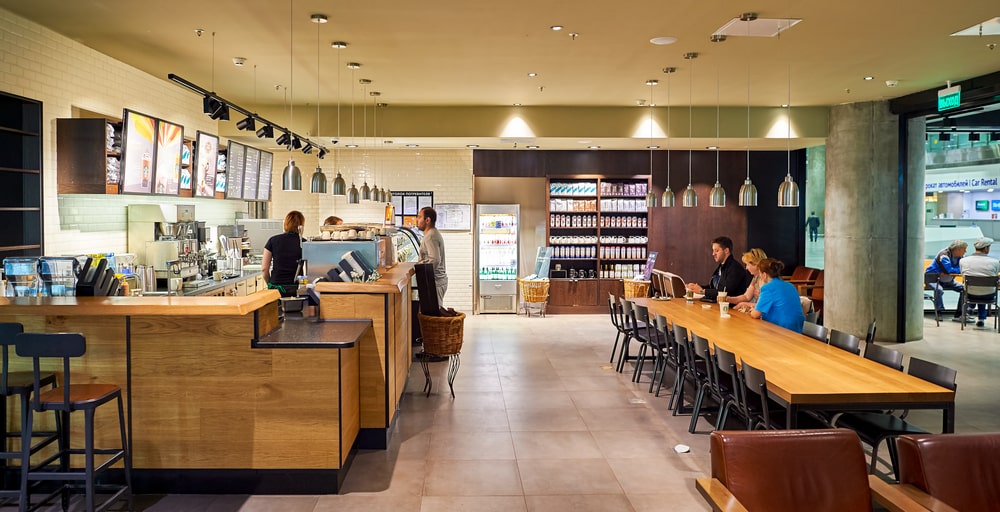Workers Compensation for Restaurants

Importance of Workers Compensation for Restaurants
Workers compensation is crucial for restaurants as it safeguards employees and business alike. In the fast-paced restaurant industry, where potential hazards are abundant, this insurance ensures that workers receive medical care and compensation for work-related injuries or illnesses. It alleviates financial burdens on employees, fostering a safer and more secure work environment.
For restaurant owners, workers’ compensation helps mitigate legal risks and financial liabilities, ensuring compliance with regulations. By prioritizing employee well-being, restaurants enhance morale, reduce turnover, and cultivate a positive reputation. Ultimately, a robust workers compensation policy is not only a legal requirement but also a strategic investment in the sustainability and success of restaurant businesses
Workers Compensation Claim Process for Restaurants
The Workers Compensation claim process for restaurants is a structured pathway to support employees who suffer work-related injuries. When an incident occurs, the injured employee must promptly report it to their supervisor. The employer then initiates the claims process, ensuring the injured worker receives prompt medical attention. Simultaneously, the employer or insurance carrier investigates the incident to determine its eligibility for compensation.
hroughout this process, clear communication and documentation are vital. If the claim is approved, the injured employee receives benefits such as medical expenses coverage and wage replacement. Timely and transparent navigation of the Workers Compensation claim process not only aids the injured worker but also helps the restaurant maintain legal compliance and uphold a positive workplace environment.
What are the Benefits Provided by Workers Compensation Insurance?
Workers Compensation Insurance offers a range of crucial benefits for both employees and employers. In the event of a work-related injury or illness, this coverage ensures that employees receive prompt medical treatment, covering expenses like hospital bills and rehabilitation costs. Moreover, workers are entitled to wage replacement during their recovery period, reducing financial strain.
For employers, Workers Compensation helps mitigate legal risks by providing immunity against employee lawsuits related to workplace injuries. This insurance fosters a safer work environment, as it incentivizes businesses to implement robust safety measures. Overall, Workers Compensation serves as a cornerstone for promoting employee well-being, maintaining workplace harmony, and safeguarding the financial stability of both workers and businesses in the restaurant industry.
List 6 Types of Injuries Covered by Workers Compensation
For employers, Workers Compensation helps mitigate legal risks by providing immunity against employee lawsuits related to workplace injuries. This insurance fosters a safer work environment, as it incentivizes businesses to implement robust safety measures. Overall, Workers Compensation serves as a cornerstone for promoting employee well-being, maintaining workplace harmony, and safeguarding the financial stability of both workers and businesses in the restaurant industry.
Slips, Trips, and Falls
Injuries resulting from slipping on wet floors, tripping over obstacles, or falling from uneven surfaces within the restaurant premises.
Cuts and Lacerations
Workers Compensation covers injuries caused by sharp objects or equipment, such as knives, slicers, or broken glass in restaurant kitchens.
Burns and Scalds
Injuries from hot surfaces, liquids, or equipment, common in restaurant settings where cooking and food preparation involve exposure to heat.
Musculoskeletal Injuries
Coverage extends to strains, sprains, and other injuries resulting from lifting heavy objects, repetitive motions, or poor ergonomics in restaurant workspaces.
Occupational Illnesses
Workers Compensation includes diseases or health conditions arising from prolonged exposure to workplace hazards, such as respiratory issues from kitchen fumes or skin conditions from chemical exposure
Repetitive Strain Injuries (RSI)
Conditions like carpal tunnel syndrome or tendonitis resulting from repetitive movements, often prevalent in restaurant tasks like chopping, stirring, or constant keyboard use in administrative roles.
What are the Benefits Provided by Workers Compensation Insurance?
Evaluating the overall risk profile of a restaurant’s workforce is a critical aspect of effective risk management. This involves assessing potential hazards unique to the industry, such as kitchen equipment, slippery floors, or ergonomic strain. Understanding the tasks performed by employees and their frequency aids in identifying specific occupational risks.
Additionally, considering employee training, compliance with safety protocols, and the implementation of preventive measures contributes to a comprehensive risk assessment. By comprehensively evaluating the workforce’s risk landscape, restaurants can implement targeted safety measures, reduce workplace injuries, and ensure a healthier, more secure environment for their employees.
